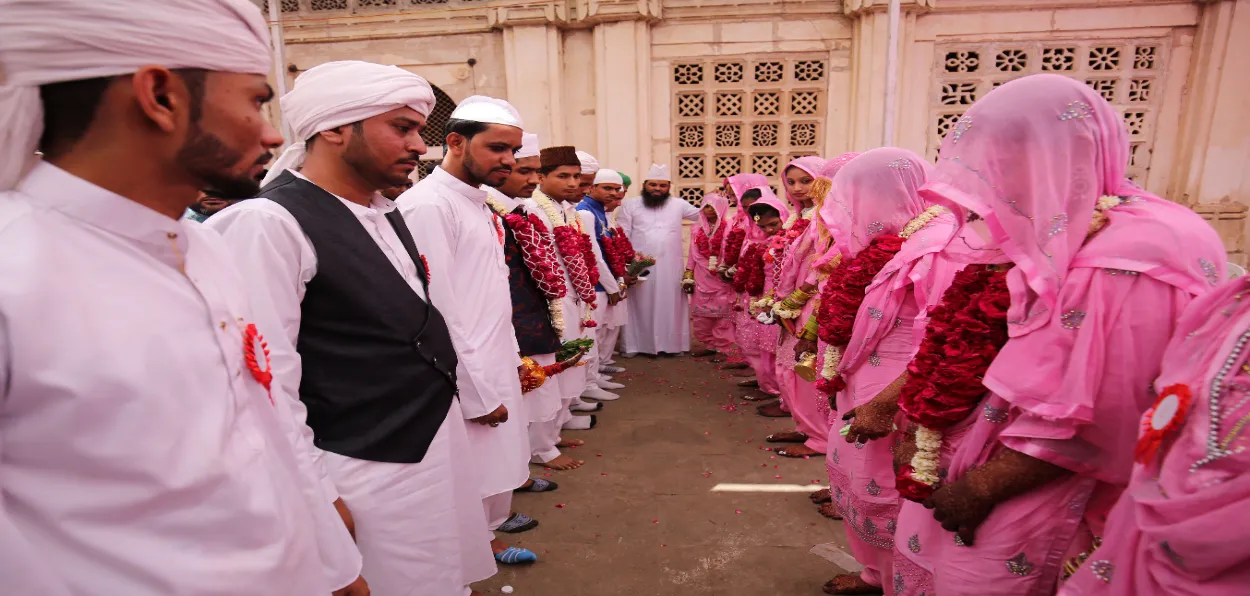
Eman Sakina
In Islamic thought, Marriage is a sacred institution rooted in divine wisdom and human need. It is both a social contract (‘aqdnikāḥ) and a spiritual covenant (mīthāqghalīẓ), designed to foster harmony, love, and mercy between partners.
Friday Musings
The Qur’an and the Sunnah of the Prophet Muhammad provide a comprehensive framework for building successful marital relationships grounded in mutual respect, compassion, and shared faith. This article explores the Prophet’s model of marriage as recorded in authentic Hadith sources, analysing its ethical and emotional dimensions, and drawing lessons for contemporary Muslim couples navigating modern challenges.
The Qur’an emphasises that this relationship is a divine sign:
“And among His signs is that He created for you from yourselves mates that you may find tranquillity in them; and He placed between you affection and mercy. Indeed, in that, there are signs for people who reflect.” — (Surah al-Rūm, 30:21)
The verse establishes sukūn (tranquillity), mawaddah (affection), and raḥmah (mercy) as the three pillars of a successful marriage. The Prophet Muhammad personified these principles in his conduct with his wives, providing a timeless model that transcends cultural and temporal boundaries.
The Prophet‘s relationships with his wives were characterised by tenderness, humility, and respect. His marriage to Khadijah bint Khuwaylid demonstrated deep loyalty and emotional stability, while his relationship with Aisha bint Abi Bakr exemplified companionship, youthfulness, and intellectual engagement.
He often expressed love openly, once declaring, “I was blessed with her love” (Muslim), referring to Khadijah (RA). He maintained emotional warmth even after her passing, honouring her memory by visiting her friends and sending them gifts (Bukhari). This highlights that love in marriage extends beyond life and time—it is rooted in loyalty and remembrance.
Modern Muslim couples can learn from this emotional intelligence: expressing affection is not a weakness but a Prophetic trait that nurtures trust and emotional security.
The Prophet actively participated in household chores. “He used to mend his own clothes, repair his shoes, and work in the house just like any of you.” — (Bukhari)
This example directly challenges traditional notions of rigid gender roles. While Islam defines complementary responsibilities for men and women, it never confines either to inflexible social expectations. For today’s Muslim couples, especially in dual-career households, sharing domestic duties not only lightens the burden but also reinforces compassion and equality within the home.
The Prophet was deeply appreciative of his wives’ efforts. He never forgot Khadijah’s unwavering support during the earliest and most difficult years of prophethood.
Gratitude in marriage is a Sunnah. Modern psychological studies echo this wisdom, showing that expressing appreciation enhances marital satisfaction and emotional well-being. When spouses acknowledge each other’s efforts—whether through words, gestures, or prayer—they strengthen the emotional fabric of their union.
In the light of the Prophet’s teachings, modern Muslim couples can draw several vital lessons:
Prioritise emotional connection over materialism– Love and mercy are stronger foundations than wealth or status.
Practice communication and empathy– Listen, validate, and support one another sincerely.
Cultivate patience and forgiveness– View conflict as a test of character, not a battle of egos.
Share responsibilities– Cooperation builds mutual respect and companionship.
Express gratitude and affection– Never withhold kind words; appreciation deepens love.
Strengthen faith together– A couple united by spirituality stands firm against life’s trials.
ALSO READ: Tauqeer Raza breaks boundaries between politics, social work and business
In an age where marital relationships are strained by individualism, consumerism, and digital distractions, returning to the Prophetic model offers both moral clarity and emotional fulfilment. Modern Muslim couples who internalise these lessons can build marriages that are not only stable and loving but also spiritually rewarding—a reflection of mawaddah and raḥmah that Allah intended for humanity.
